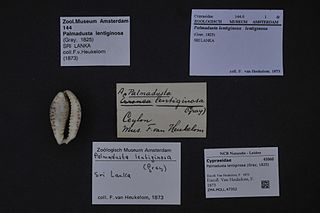
The Battle of Pharsalus was the decisive battle of Caesar's Civil War fought on 9 August 48 BC near Pharsalus in Central Greece. Julius Caesar and his allies formed up opposite the army of the Roman Republic under the command of Pompey. Pompey had the backing of a majority of Roman senators and his army significantly outnumbered the veteran Caesarian legions.

Marcus Annaeus Lucanus, better known in English as Lucan, was a Roman poet, born in Corduba, Hispania Baetica. He is regarded as one of the outstanding figures of the Imperial Latin period, known in particular for his epic Pharsalia. His youth and speed of composition set him apart from other poets.

Pharsalia is a town in Chenango County, New York, United States. The population was 593 at the 2010 census. The town was named after Pharsalia, which is a commonly accepted name of the decisive battle in the Great Roman Civil War, where Julius Caesar defeated Pompey in 48 BCE.

In Roman literature, Erichtho is a legendary Thessalian witch who appears in several literary works. She is noted for her horrifying appearance and her impious ways. Her first major role was in the Roman poet Lucan's epic Pharsalia, which details Caesar's Civil War. In the work, Pompey the Great's son, Sextus Pompeius, seeks her, hoping that she will be able to reveal the future concerning the imminent Battle of Pharsalus. In a gruesome scene, she finds a dead body, fills it with potions, and raises it from the dead. The corpse describes a civil war that is plaguing the underworld and delivers a prophecy about what fate lies in store for Pompey and his kin.

De Bello Civili, more commonly referred to as the Pharsalia, is a Roman epic poem written by the poet Lucan, detailing the civil war between Julius Caesar and the forces of the Roman Senate led by Pompey the Great. The poem's title is a reference to the Battle of Pharsalus, which occurred in 48 BC, near Pharsalus, Thessaly, in Northern Greece. Caesar decisively defeated Pompey in this battle, which occupies all of the epic's seventh book. In the early twentieth century, translator J. D. Duff, while arguing that "no reasonable judgment can rank Lucan among the world's great epic poets", notes that the work is notable for Lucan's decision to eschew divine intervention and downplay supernatural occurrences in the events of the story. Scholarly estimation of Lucan's poem and poetry has since changed, as explained by commentator Philip Hardie in 2013: "In recent decades, it has undergone a thorough critical re-evaluation, to re-emerge as a major expression of Neronian politics and aesthetics, a poem whose studied artifice enacts a complex relationship between poetic fantasy and historical reality."

Pharsalia Technologies, Inc. was founded in December 1999, located in Roswell, Georgia, as an emerging company developing network infrastructure products for the Internet market. Led by a team of over 28 software engineers, Pharsalia focused on developing software products for the rapidly escalating content delivery market. The company was headed by Chip Howes, whose team is the inventor of record for over 30 patents in the area of TCP/IP server load balancing, and are credited with the invention of the technology in 1996.
Toutatis or Teutates is a Celtic god who was worshipped primarily in ancient Gaul and Britain. His name means "god of the tribe", and he has been widely interpreted as a tribal protector. According to Roman writer Lucan, the Gauls offered human sacrifices to him.

Muraena lentiginosa is a moray eel from the Eastern Pacific. It occasionally makes its way into the aquarium trade. It grows to a size of 61 centimetres in length.

Hawkins Pharsalia is a historic home located at Ruthsburg, Queen Anne's County, Maryland, United States. It is a 1+1⁄2-story, three-bay, single-pile gambrel-roofed brick dwelling constructed c. 1829, according to a 2015 dendrochronological study by the Oxford Tree-Ring Laboratory. It is one of the best preserved small early-19th century houses in Queen Anne's County, according to the Maryland Historical Trust. Additionally on the property is a brick smokehouse.

Conasprella lentiginosa is a species of sea snail, a marine gastropod mollusk in the family Conidae, the cone snails and their allies.

Turritella lentiginosa is a species of sea snail, a marine gastropod mollusk in the family Turritellidae.

Palmadusta lentiginosa is a species of sea snail, a cowry, a marine gastropod mollusk in the family Cypraeidae, the cowries.
Coleophora lentiginosa is a moth of the family Coleophoridae.

Parosmodes lentiginosa, the rare Morant skipper, is a butterfly in the family Hesperiidae. It is found in Sierra Leone, Liberia, Ivory Coast, Ghana, Nigeria, Cameroon, Gabon, Angola, the Central African Republic and the Democratic Republic of the Congo. The habitat consists of forests and forest/savanna mosaic.

Monilea lentiginosa is a species of sea snail, a marine gastropod mollusk in the family Trochidae, the top snails.

Pharsalia is a genus of long-horned beetles in the family Cerambycidae. There are at least 40 described species in Pharsalia, found mainly in South and Southeast Asia.>

Loricaria lentiginosa is a species of catfish of the family Loricariidae. It is endemic to the upper Paraná River basin in Brazil. It reaches 51.4 cm in standard length and is believed to be a facultative air-breather. The species was described by Dutch ichthyologist Isaäc J. H. Isbrücker in 1979.
In Greek mythology, Hesperia or Hesperie, may refer to the following characters and places:
East Pharsalia is a hamlet in Chenango County, New York, United States. The community is 10 miles (16 km) west of Norwich. East Pharsalia had a post office from March 10, 1830 until September 28, 2002; it still has its own ZIP code, 13758.
Peltodoris lentiginosa, also known as the mottled pale sea lemon or the giant freckled dorid, is a species of sea slug. It is a dorid nudibranch in the family Discordorididae.














